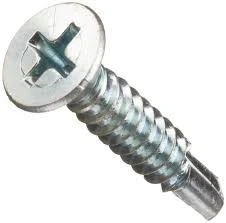chemical anchors for brickwork
Chemical Anchors for Brickwork Understanding Their Importance and Application
In the realm of construction and building, ensuring the integrity and stability of structures is paramount. One effective solution that has gained popularity over the years is the use of chemical anchors, particularly in brickwork applications. These innovative anchoring systems provide a robust and reliable means of securing materials, making them indispensable in modern construction practices.
What Are Chemical Anchors?
Chemical anchors are specialized fastening solutions that utilize a combination of resin and hardening agents to bond bolts or rebar to the substrate. This anchoring method is particularly advantageous when working with brick, a material known for its durability yet often susceptible to cracking and breakage if traditional mechanical anchors are improperly installed. Chemical anchors are designed to create a strong bond within the brick substrate, distributing loads more evenly and significantly enhancing the overall strength of the connection.
Why Use Chemical Anchors for Brickwork?
1. Load Distribution One of the main benefits of chemical anchors is their ability to distribute load more evenly across the brick. Traditional mechanical anchors can create concentrated stress points, which may lead to cracking and failure, especially in older or weaker brick structures. Chemical anchors, by contrast, fill the drilled hole with adhesive resin, allowing for a more uniform load distribution.
2. High Strength and Durability Chemical anchors are engineered to withstand substantial tensile and shear forces, making them ideal for securing heavy objects or structural elements in brickwork applications. This durability ensures that the anchor will remain effective over time, even in challenging environmental conditions.
3. Versatility Chemical anchors come in various types and formulations, allowing them to be used across a range of applications. Whether in residential constructions, commercial buildings, or infrastructure projects, there are chemical anchor solutions tailored to specific requirements, such as varying load capacities and environmental conditions.
4. Resistance to Environmental Factors One of the significant advantages of chemical anchors is their resistance to moisture, temperature fluctuations, and chemicals. This resistance makes them suitable for outdoor applications or areas that may be exposed to harsh conditions, ensuring long-lasting performance.
Applications in Brickwork
Chemical anchors are widely used in various brickwork applications. Some common scenarios include
- Structural Supports They are often employed to secure structural elements such as beams, columns, and trusses to brick walls, enhancing the overall integrity of the structural framework.
chemical anchors for brickwork

- Facade Attachments In buildings with brick facades, chemical anchors can secure elements like cladding, signage, or decorative features, ensuring that these additions are stable and aesthetically pleasing
.- Heavy Equipment Installation For installations that require anchoring heavy equipment to brick surfaces, chemical anchors provide the necessary strength and stability, preventing any potential movement or failure.
Installation Process
The installation of chemical anchors involves several critical steps to ensure optimal performance
1. Surface Preparation The brick surface must be clean and free from dust, oil, and debris to allow for proper bonding of the adhesive.
2. Drilling the Hole A precise hole is drilled into the brick, considering the specific requirements of the anchor being used, including diameter and depth.
3. Injecting the Adhesive The adhesive resin is injected into the drilled hole, ensuring complete filling to achieve a strong bond.
4. Inserting the Anchor The anchor bolt is then inserted into the hole, which is followed by allowing the resin to cure as per the manufacturer's instructions.
5. Final Inspection Once the adhesive has fully cured, the anchor is inspected for proper placement and strength, ensuring that it meets the necessary safety standards.
Conclusion
Chemical anchors are a vital component in modern brickwork applications, providing unprecedented strength, durability, and versatility. Their ability to enhance load distribution while resisting environmental factors makes them ideal for various construction projects. As the construction industry continues to evolve, the importance of reliable anchoring solutions like chemical anchors will undoubtedly remain a cornerstone of building integrity and safety. Whether you are a contractor, architect, or DIY enthusiast, understanding the benefits and applications of chemical anchors in brickwork is essential for successful project outcomes.
-
Weatherproof Plastic Expansion Anchors for OutdoorNewsJun.06,2025
-
Sustainability in the Supply Chain: Eco-Friendly TEK Screws ProductionNewsJun.06,2025
-
Load-Bearing Capacity of External Insulation FixingsNewsJun.06,2025
-
Double Head Bolts: Enhancing Efficiency in Industrial MachineryNewsJun.06,2025
-
Corrosion Resistance in Chipboard Screws: Coatings for Wholesale DurabilityNewsJun.06,2025
-
Butterfly Toggle Bolts : Enhancing Structural ResilienceNewsJun.06,2025
